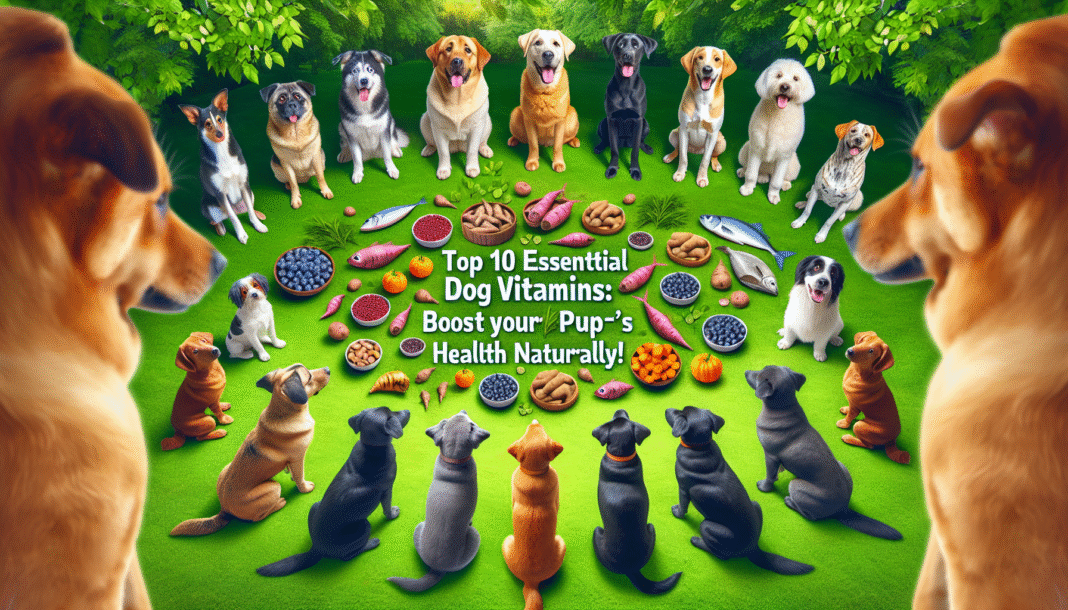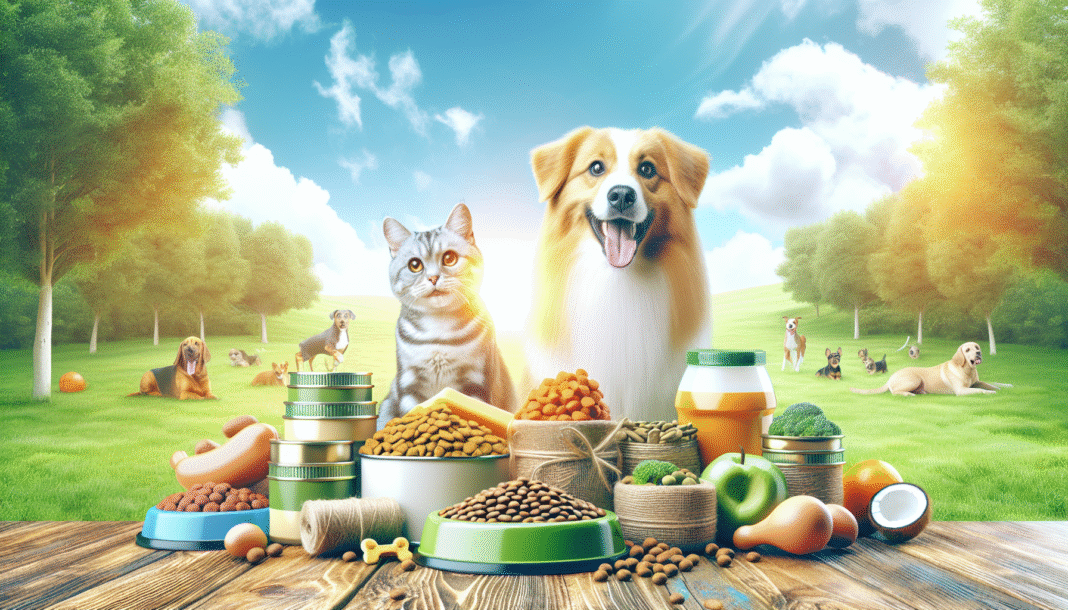As a dedicated dog owner, you naturally want the very best for your furry friend. A well-balanced diet is fundamental, but sometimes our pups need an extra nutritional boost. This is where vitamins come in! These essential nutrients play a vital role in maintaining your dog’s health, helping with everything from immune function to skin health. Let’s explore the top 10 dog vitamins that can enhance your pet’s well-being naturally.
1. Vitamin A: Vision and Immune Support
What It Does:
Vitamin A is crucial for your dog’s vision, skin health, and immune function. It helps maintain good eyesight, especially in low light.
Sources:
You can find vitamin A in liver, fish oil, and carrots. Consider adding these foods to your pup’s diet for a natural boost!
Symptoms of Deficiency:
Watch out for dull coat, poor night vision, and increased susceptibility to infections.
2. B Vitamins: Energy and Cell Health
What It Does:
The B vitamin group includes B1 (thiamine), B2 (riboflavin), B3 (niacin), B5 (pantothenic acid), B6 (pyridoxine), B7 (biotin), B9 (folic acid), and B12. These vitamins are critical for energy production, brain health, and the formation of red blood cells.
Sources:
B vitamins are found in meat, eggs, and whole grains. Incorporate these into their meals, especially if your dog has a higher energy level.
Symptoms of Deficiency:
Signs include lethargy, poor appetite, and skin issues. If you observe these symptoms, a B vitamin supplement might be necessary.
3. Vitamin C: Antioxidant for Immunity
What It Does:
Vitamin C is an antioxidant that boosts your dog’s immune system and helps reduce inflammation. Although dogs can usually produce their own, supplementation can be beneficial, particularly in cases of stress or illness.
Sources:
Fruits like blueberries, strawberries, and vegetables such as spinach are excellent sources.
Symptoms of Deficiency:
Look for signs of fatigue, slow healing of wounds, and increased infections.
4. Vitamin D: Bone Health
What It Does:
Vitamin D plays a vital role in calcium absorption, crucial for your dog’s bones and teeth.
Sources:
Fatty fish and liver are great sources, but be cautious—too much vitamin D can be toxic. A balanced diet typically provides sufficient vitamin D.
Symptoms of Deficiency:
Deficiencies can lead to weak bones and dental issues. If your dog is showing signs of weakness or pain while moving, it might be time to assess their vitamin D levels.
5. Vitamin E: Skin and Coat Health
What It Does:
Vitamin E is another powerful antioxidant and is crucial for maintaining skin health and a shiny coat. It also aids in immune function.
Sources:
Sources include nuts, seeds, and green leafy vegetables. Consider adding a small amount of olive oil to their diet for a natural source of vitamin E.
Symptoms of Deficiency:
Deficiency can lead to flaky skin, a dull coat, and increased illness susceptibility.
6. Omega-3 Fatty Acids: Heart and Joint Health
What It Does:
While not a vitamin in the traditional sense, omega-3 fatty acids are essential for heart, joint, and skin health. They reduce inflammation and promote a healthy coat.
Sources:
Fish oil and flaxseed oil are excellent sources. If your dog suffers from joint issues or allergies, omega-3 supplements might be worth considering.
Symptoms of Deficiency:
Look for dry skin, joint pain, or behavioral changes. If your dog seems less active or reluctant to move, omega-3s could help.
7. Calcium: Bone and Teeth Strength
What It Does:
Calcium is essential for maintaining strong bones and teeth. It’s particularly important for growing puppies and senior dogs.
Sources:
Dairy products, green vegetables, and certain fish can boost calcium intake. Just be mindful of your dog’s lactose tolerance if you choose dairy.
Symptoms of Deficiency:
Signs include dental issues, weak bones, and potential muscle problems. Pay attention to your dog’s movements and posture.
8. Phosphorus: Energy Production
What It Does:
Phosphorus works closely with calcium to build and maintain strong bones and teeth. It also plays a role in energy production.
Sources:
Meat, fish, and eggs are rich in phosphorus. Ensuring a balanced diet rich in protein will help maintain the right levels.
Symptoms of Deficiency:
Look for signs like weakness, lethargy, or poor growth in puppies.
9. Zinc: Skin Health and Immune Function
What It Does:
Zinc is crucial for maintaining skin health, promoting wound healing, and supporting the immune system.
Sources:
Meat, fish, and certain grains are rich in zinc. If your dog has skin issues, it might be worth discussing zinc supplementation with your vet.
Symptoms of Deficiency:
Dry skin, inflammation, and increased infections are common signs of a zinc deficiency.
10. Iron: Blood Health
What It Does:
Iron is essential for the production of hemoglobin, which carries oxygen in the blood. It’s vital for overall health, energy levels, and cognitive function.
Sources:
You can provide iron through red meat, liver, or dark leafy greens.
Symptoms of Deficiency:
Watch for signs like fatigue, weakness, and a dull coat. If your dog seems more tired than usual, it might be time to check their iron levels.
Practical Tips for Supplementing Dog Vitamins
-
Consult Your Vet: Always consult your veterinarian before introducing new supplements to your dog’s diet.
-
Choose Quality Supplements: When selecting vitamins, opt for high-quality products designed specifically for dogs.
-
Monitor Dosage: Be cautious with dosing, as too much of a good thing can be harmful. Follow the recommended amounts on the label.
-
Incorporate Whole Foods: Whenever possible, aim to provide nutrients through whole food sources. This method ensures better absorption and overall nutrition.
-
Observe Changes: Keep an eye on your dog’s health. If you notice any changes—positive or negative—adjust their supplement intake accordingly.
By carefully selecting vitamins and maintaining a balanced diet, you can support your dog’s health and well-being effectively. Your furry companion deserves nothing but the best, and with the right approach to nutrition, you can help ensure they lead a happy and healthy life!





